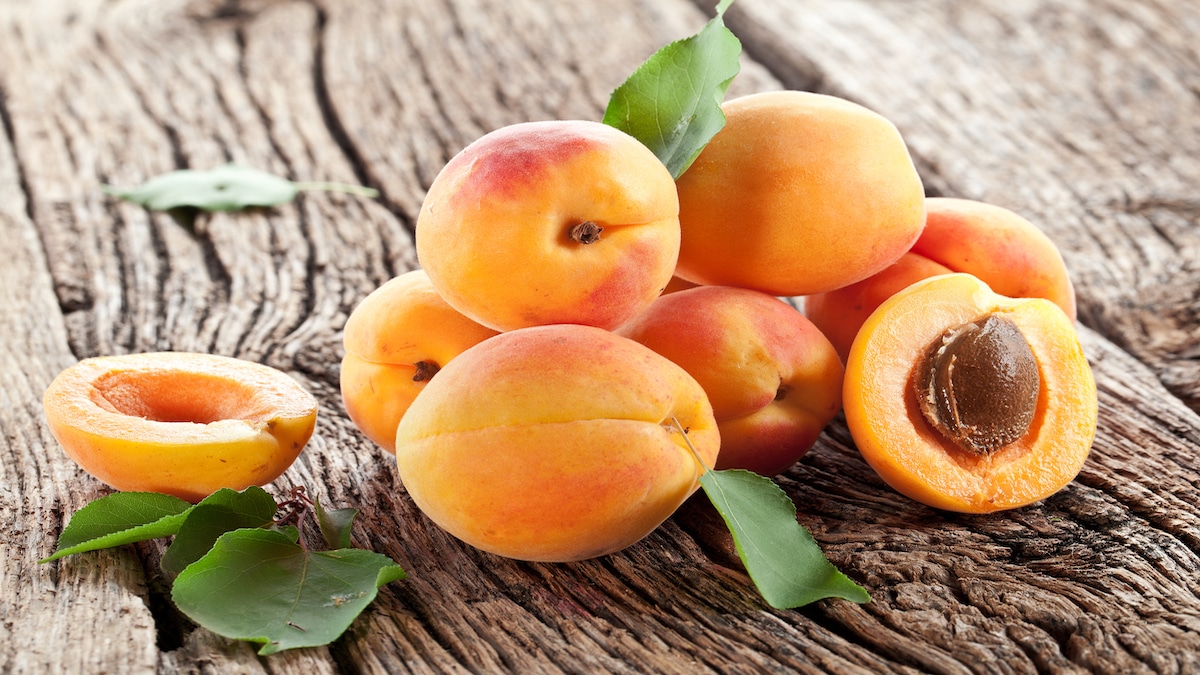

Apricots (Prunus armeniaca) have the tartness of a plum but the juiciness of a peach. These stone fruits are extremely nutritious and contain many health benefits, from high antioxidant content to improved digestion.
When the Romans learned of the apricot in the first century A.D., they called it “praecocum” or the “precious one.” The apricot was first cultivated around 2000 B.C in China and Central Asia. Chinese merchants who traveled the Great Silk Road likely introduced the apricot to the Persians, who named it “zaradaloo” or “yellow plum.” Eventually, it spread into Eurasia by nomadic tribesmen.
Today, researchers consider the apricot to be a golden food crop due to its nutritional and medicinal value. Apricots are a good source of fiber, protein and many vitamins and minerals. Here are five health and nutrition benefits of apricots.
- Apricots Can Protect Against Inflammation
Apricots are high in flavonoids, an antioxidant that guards against inflammation. The primary flavonoids are chlorogenic acids, catechin and quercetin, and apricots also contain the antioxidants vitamins A, C and E, as well as beta carotene. Antioxidants can reduce your risk for diabetes, obesity and heart disease as they target the oxidative stress behind these illnesses.
A 2015 study published in the American Journal of Clinical Nutrition used a scoring system to track changes in inflammatory marker levels. Among 2,375 participants, researchers found high flavonoid intake was associated with a 42% lower inflammation score and also linked to a 56% lower oxidative stress score.
- Apricots Contain Eye-Beneficial Vitamins
There are many vitamins in apricots that also benefit eye health, including vitamins A and E. Apricots also contain beta carotene, which gives apricots their yellow-orange color, and can be converted into vitamin A in the body. These vitamins are also antioxidants that protect the body from free radical damage.
Vitamin A also is linked with preventing night blindness, an eye disorder caused due to a lack of light pigments in the eyes. Night blindness is also one of the first signs of vitamin A deficiency, according to WHO.
- Eating Apricots Could Benefit Your Skin
The primary sources of skin damage, including wrinkles, are environmental factors like pollution, cigarette smoke and too much sun. According to UC San Diego Health, any change in skin tone due to prolonged sun exposure can increase one’s risk of skin cancer. Some of this damage can be prevented with a diet containing antioxidants, which apricots are full of, as antioxidants protect the body against oxidative stress.
- Apricots May Benefit Digestion and Gut Health
Apricots contain soluble and insoluble fiber, but they are especially high in soluble fiber. This type of fiber is important for maintaining healthy cholesterol and blood sugar levels. Fiber also helps regulate healthy digestion by delaying the movement of food through the GI tract, feeding your beneficial gut bacteria. A healthy gut microbe is linked with a reduced risk of obesity.
- Apricots Can Help Maintain Healthy Blood Pressure
Apricots contain a high amount of potassium, which also acts as an electrolyte. It helps send nerve signals and regulate fluid balance and muscle contractions.
Due to its role in assisting with fluid balance, adequate intake of potassium could help maintain healthy blood pressure and prevent bloating. An older meta-analysis of 33 studies published in the British Medical Journal (BMJ) found that a potassium-rich diet significantly decreased blood pressure and resulted in a 24% reduced risk of stroke.
Apricots contain a high level of antioxidants, fiber, vitamins and minerals. They also boast multiple health benefits, improving eye, skin and digestive health in addition to preventing the risk of disease and other damage.
Apricots are delicious fresh or dried or consumed as a jam or fruit bar. In a pinch, they make a great addition to salads, yogurt and other healthy meals.

 233k
233k  41k
41k  Subscribe
Subscribe 